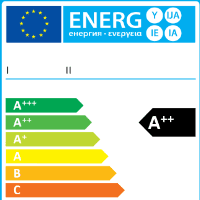(BRUSSELS) – A simpler, clearer A to G scale for labelling the energy efficiency of household appliances should replace the current proliferation of pluses within 5 years, Energy MEPs said on Tuesday.
A proposal for a new EU regulation aims to ensure that consumers are not misled into thinking that an ‘A’ class appliance is one of the most efficient on the market, whereas under current rules it may in fact be one of the least efficient.
MEPs from the Industry, Research and Energy Committee amended the draft regulation proposing that “rescaled labels for existing product groups” be introduced within five years of its entry into force, so as “to ensure a homogenous A-G scale”. Any future rescale should aim for a validity period of at least 10 years, say MEPs, who laid down the following trigger criteria for future rescales:
- when 25% of the products sold within the EU market fall into the top energy efficiency class A; or
- when 50% of the products sold within the EU market fall into the top two energy efficiency classes A+B.
In any new rescaling or labelling, class A should at first be empty, and in product groups showing rapid technological progress, classes A and B should both be empty at first, say MEPs.
When energy classes F and G are not allowed for some product groups, these should be shown on the label in grey, and the standard dark green to red spectrum of the label should be retained for the remaining upper classes, they add.
The label should contain information about the energy efficiency class of the product model, and its absolute consumption in kWh, displayed per year or per any relevant period of time.
Suppliers and dealers would have to refer to the energy efficiency class of the product in any visual advertisement or technical promotional material for a specific model of product.
MEPs also advocated the setting up a “product database” consisting of a consumer-website, where information is individually accessible, and a “compliance” interface, i.e. an electronic platform supporting the work of national market surveillance authorities, available in all the languages of the countries where the products are placed on the market.
The draft regulation now goes before the full House, which will need to vote in an upcoming plenary session on a mandate for starting the negotiations with the Council of Ministers.








